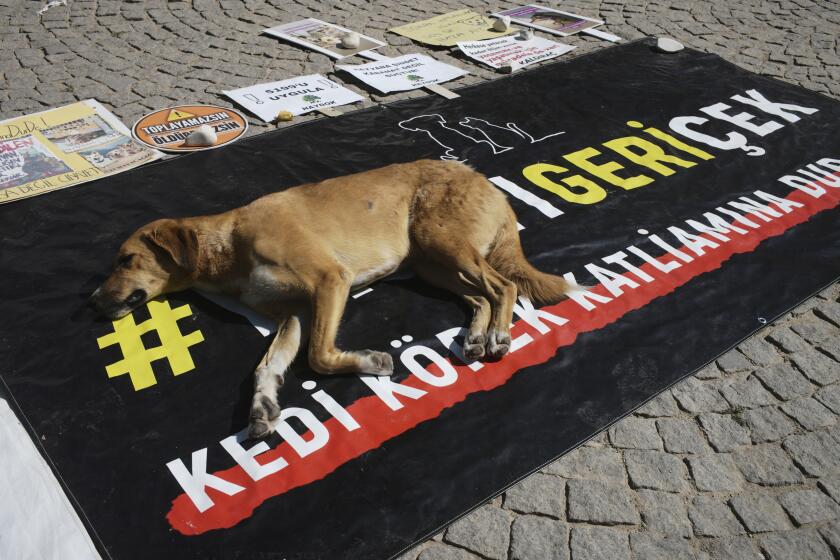Sign on U.S. Mission in Cuba Talks Freedom, Stirs Friction
The top U.S. diplomat here defended last week’s decision to install a huge electronic sign on the facade of the American diplomatic mission with streaming text of news and sayings about freedom.
“What we are trying to do is communicate with the Cuban people,” Michael Parmly, chief of the U.S. Interests Section, said Thursday.
Cuban President Fidel Castro contended that the United States was intent on sparking a diplomatic crisis.
“All of the measures they have taken have the intention of provoking a rupture in these ties, these minimum links, in diplomatic relations,” Castro told reporters Wednesday night outside the mission.
Cuban workers wielding jackhammers and other equipment have begun erecting a structure that observers believe is likely to block the view of the sign, which transmits messages from people including the Rev. Martin Luther King Jr., Abraham Lincoln and President Bush.
“No man is good enough to govern another man without that other’s consent,” Lincoln’s quote reads.
Also passing slowly on the 5-foot-high ticker, which is on the building’s fifth floor and is illuminated only at night, is a quote by Voltaire that reads, “Man is free in the moment he wishes to be free.”
Alfredo Mesa, executive director of the Cuban American National Foundation, a powerful Miami-based exile group, said the ticker was a good way to break the Cuban government’s controls on information.
But Wayne Smith, who was the top American diplomat in Cuba during the Carter administration, said the sign would only aggravate relations between Cuba and the United States.
“Instead of tackling real issues, they are doing this,” Smith said. “It’s theater of the absurd.”
Few residents said they had seen the ticker.
Cuban officials have blocked off traffic around the U.S. mission in recent days.
Even before that, officials prohibited vehicles from stopping in front of the Interests Section, a modernist building on the Malecon, Havana’s sweeping seaside boulevard.
“You have to drive fast on the Malecon, and it was impossible to read,” said Llanes, a taxi driver who declined to give her last name.
Since taking office, Bush has tried to weaken Castro’s grip on power by tightening a 4-decade-old trade embargo while increasing support to the island’s small and fractured dissident movement.
On Tuesday, Castro led a huge government-organized march in front of the mission to protest the ticker and other U.S. actions involving Cuba.
American officials turned the ticker on just as Castro was beginning to address the crowd.
More to Read
Sign up for Essential California
The most important California stories and recommendations in your inbox every morning.
You may occasionally receive promotional content from the Los Angeles Times.







